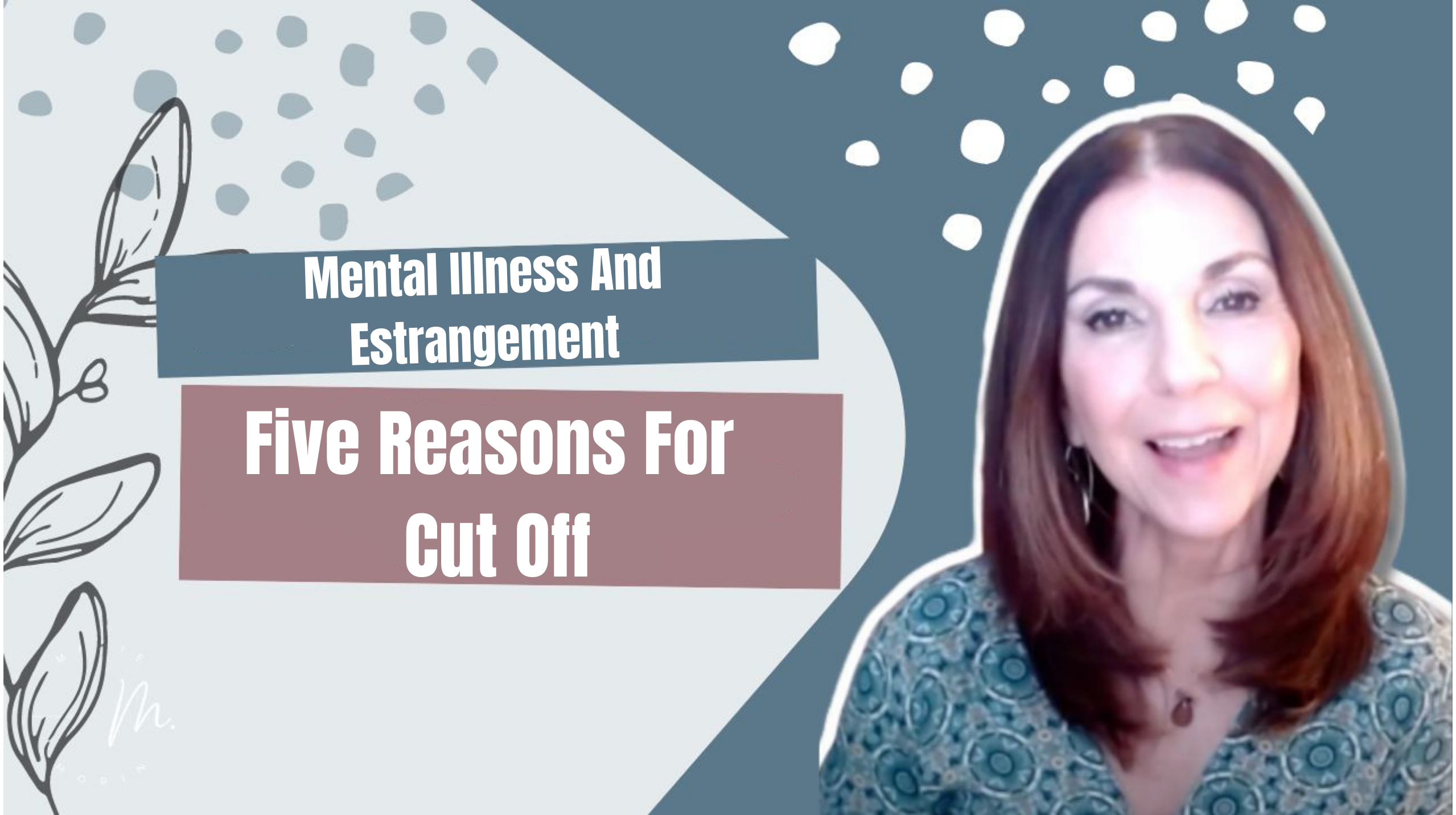When a parent struggles with mental illness, it can profoundly impact their relationship with their adult children. The complexities of mental health conditions can create challenges that strain the parent-child bond, sometimes leading to estrangement. Understanding the reasons behind this estrangement is crucial for both parents and adult children. In this blog, we will explore five key factors that can contribute to adult children distancing themselves from a parent with mental illness and discuss potential ways to address these issues.
1. Stigma and Misunderstanding:
Society’s stigma surrounding mental illness can harm individuals directly experiencing it and their family members. Due to societal judgment and misconceptions, adult children may feel embarrassed, ashamed, or burdened by their parent’s mental health condition. Moreover, a lack of awareness and understanding of mental illness can exacerbate the situation. Misconceptions, fear, and a sense of helplessness can lead adult children to distance themselves from their parents, believing it is the best way to protect their well-being. Breaking down stigma through education and open conversations can help create a more supportive environment for families affected by mental illness.
2. Emotional Turmoil and Unpredictability:
Living with a parent who has a mental illness can create an environment of emotional turmoil and unpredictability. Fluctuations in mood, irrational behavior, or neglectful actions can be distressing for adult children. They may experience constant anxiety and uncertainty, unsure of how their parent will behave from one day to the next. The emotional toll of witnessing their parent’s struggles and feeling responsible for their well-being can become overwhelming. Adult children may distance themselves to establish emotional boundaries and safeguard their mental health. Both parents and adult children must prioritize self-care and seek professional support to navigate these challenging circumstances.
3. Unresolved Trauma and Resentment:
Growing up with a parent with a mental illness can lead to unresolved trauma and deep-seated resentment. The effects of witnessing parental struggles, unstable family dynamics, or neglect can persist into adulthood. Adult children may feel anger, disappointment, or a sense of abandonment. Unresolved trauma and resentment can make it challenging to maintain a healthy relationship, leading to estrangement as a means of self-preservation. Healing from past wounds requires time, understanding, and therapeutic interventions. Both parents and adult children can benefit from individual and family therapy to address these underlying issues and work toward reconciliation.
4. Lack of Support and Resources:
The absence of adequate support and resources for the parent and their family can contribute to strained relationships. Mental health services may be inaccessible, unaffordable, or not readily available, leaving the parent and adult children feeling isolated and unsupported. A lack of professional guidance and community resources can hinder effective coping strategies and communication, making it challenging to navigate the complexities of the parent-child relationship. Families must seek out available resources, such as support groups, therapy, and educational materials, to better understand mental illness and learn healthier ways to cope as a family unit.
5. Caregiver Burden and Exhaustion:
Adult children may be thrust into a caregiver role due to their parent’s mental illness. Balancing their lives, responsibilities, and emotional well-being while caring for a parent can be overwhelming. The constant stress and emotional burden can lead to burnout, leaving adult children feeling depleted and unable to continue providing the necessary support. Sometimes, they may distance themselves to protect their mental health and establish boundaries. Recognizing the limitations of being a sole caregiver and seeking assistance from professionals, support networks, and other family members can help alleviate the caregiver burden. Creating a comprehensive care plan that involves multiple sources of support can benefit both the parent and the adult children, ensuring that the responsibility is shared and preventing the overwhelming exhaustion that can lead to estrangement.
Conclusion:
Estrangement resulting from a parent’s mental illness is a profoundly complex issue affecting parents and children. It is essential to approach this topic with empathy, understanding, and a willingness to explore potential solutions. Recognizing the impact of stigma, emotional turmoil, unresolved trauma, lack of support, and caregiver burden is crucial for both parties. Open communication, empathy, therapy, and accessing available mental health resources can be instrumental in rebuilding the parent-child relationship.
Parents struggling with mental illness should seek professional help, create a support network, and actively engage in their recovery. By taking proactive steps toward managing their mental health, parents can demonstrate their commitment to their well-being and the well-being of their children. This can help to alleviate some of the concerns and fears that adult children may have.
Adult children should also prioritize their mental health and seek support from therapists, support groups, and friends who understand their unique circumstances. Establishing healthy boundaries and practicing self-care is essential in managing the emotional toll of being a part of a family affected by mental illness.
Understanding and addressing these factors can lead to healing, knowledge, and the potential for reconciliation between a parent with mental illness and their adult children. It is important to remember that each situation is unique, and reconciliation may not be possible or healthy in every case. However, by fostering open communication, seeking professional help, and accessing available resources, families can work towards repairing relationships and finding ways to support each other through the challenges posed by mental illness.
Disclaimer: The information, scenarios, and data shared in this blog are not intended to point fingers at family members but to bring insight into this challenging and heartbreaking topic. The aim is to provide guidance and support to families affected by mental illness, hoping to promote relief, forward movement, and the repair of relationships when possible.








